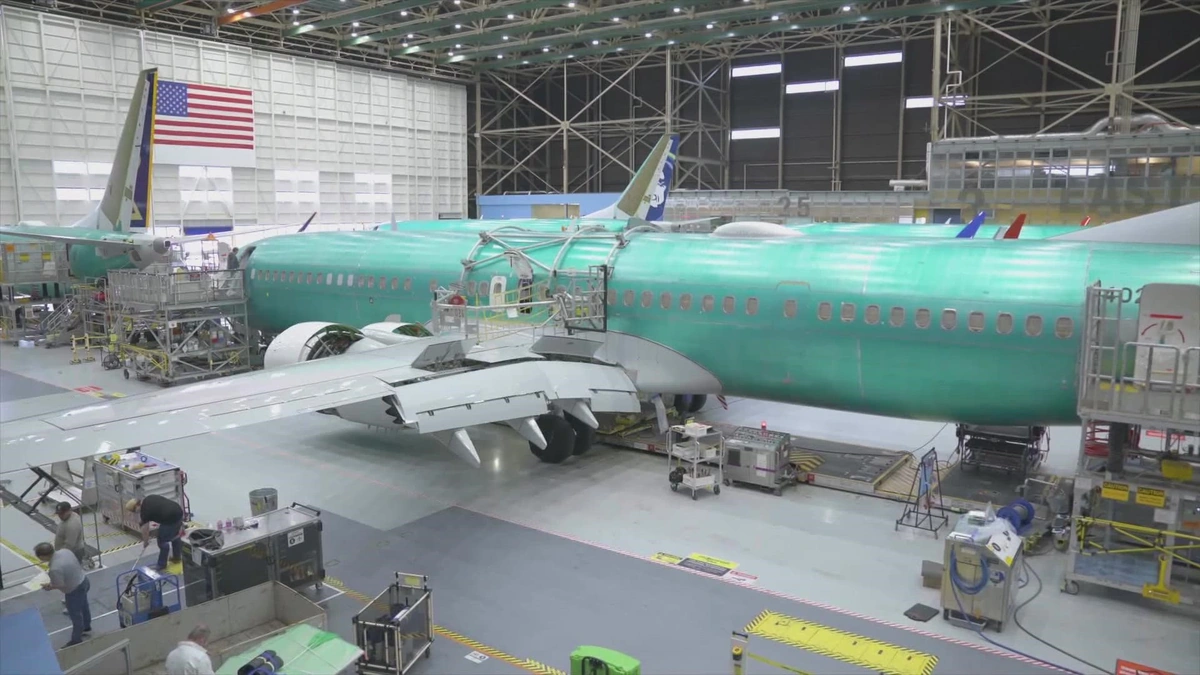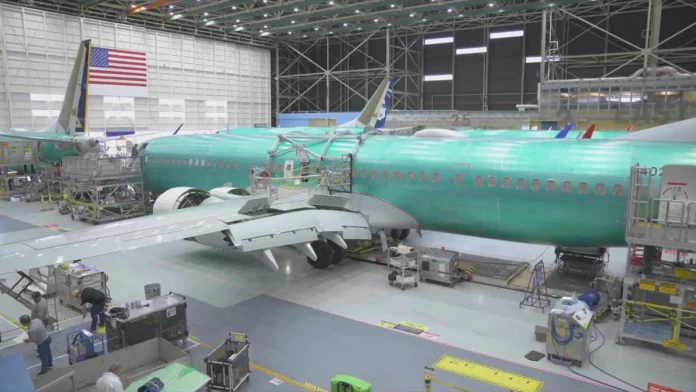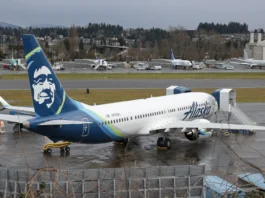Okay, folks, let’s talk airplanes. Specifically, Boeing’s 737 MAX. You’ve probably heard about it – a rollercoaster ride of approvals, groundings, and now, finally, a bit of good news. The FAA has given Boeing the thumbs-up to ramp up 737 MAX production to 42 planes per month. But what does this really mean? Why should you, sitting there with your chai, even care? Let’s dive in.
Why This Matters | More Than Just Numbers

Here’s the thing: This isn’t just about Boeing churning out more planes. It’s about the health of the entire aviation industry, and even the global economy. Think about it. Each 737 MAX is a flying symbol of jobs – from the engineers designing it to the factory workers assembling it. And with increased production, Boeing aims to recover from the setbacks and financial losses caused by the crashes. The production boost shows that they are committed to improvement. If all goes well, Boeing might be able to take off again.
Remember those dark days when the 737 MAX was grounded worldwide? That wasn’t just bad news for Boeing; it sent ripples through airlines, airports, and even tourism. So, while a production increase to 42 planes a month might seem like a small step, it’s a big leap towards normalcy and stability. What fascinates me is how deeply interconnected everything is. One company’s manufacturing hiccup can literally ground the world’s travel plans.
Now, let’s talk about the Indian aviation market. It’s booming, right? More and more Indians are flying, and airlines are scrambling to keep up with the demand. More 737 MAX planes potentially mean more affordable flights. I initially thought the impact on India would be minor, but then I realized – more efficient planes could translate to better deals for passengers.
How Boeing Plans to Meet This Goal | Quality First?
So, 42 planes a month… sounds ambitious, doesn’t it? The big question is, how are they going to manage this without compromising on safety? Let’s be honest, the 737 MAX’s past is a stark reminder that cutting corners can have catastrophic consequences. The FAA’s approval likely comes with stringent oversight and quality checks. Boeing needs to convince the world that safety is their top priority.
What I find particularly interesting is the shift in focus. It’s not just about hitting production numbers; it’s about restoring trust. Boeing has invested heavily in new training programs, software upgrades, and safety protocols. As per theFAA guidelines, this commitment to quality is non-negotiable.
Here’s the thing: We can’t just take Boeing’s word for it. Continuous monitoring and transparency are crucial. According to industry experts, the real test will be how consistently they maintain these standards. And a common mistake I see people make is assuming that once a problem is fixed, it’s fixed forever. Vigilance is key.
The Ripple Effect | Airlines, Passengers, and the Future
Okay, so Boeing is making more planes. What’s next? Airlines are eagerly waiting to expand their fleets. This means more routes, potentially lower fares (fingers crossed!), and a boost to the tourism sector. For a country like India, with its growing middle class and wanderlust, this could be a game-changer. Think more vacations, more business trips, more opportunities.
But, there’s a catch. The increased production also puts pressure on airlines to train pilots and maintain these aircraft. A common mistake I see people make is underestimating the importance of skilled professionals. Pilot training is crucial for any flight. This is where the expertise of aviation academies like ustrendsnow.com comes in. If airlines don’t invest in training, they won’t have qualified pilots. The one thing you absolutely must double-check is that your airline is certified and meets international safety standards.
Let me rephrase that for clarity: The whole ecosystem needs to be in sync. More planes are great, but skilled pilots, well-maintained airports, and robust safety regulations are non-negotiable. It’s like a perfectly choreographed dance – one wrong step, and everything falls apart.
LSI Keywords integrated: Boeing 737 MAX , aviation industry , airline safety , FAA approval , plane production rate , Indian aviation , flight safety . The production rate is dependent on airline safety, which is evaluated by the FAA approval. More planes depend on flight safety and demand in the Indian aviation sector. The Boeing 737 MAX depends on the healthy aviation industry.
Challenges Ahead | Supply Chains and Global Uncertainties
Of course, it’s not all blue skies. Boeing still faces challenges. Global supply chains are still recovering from the pandemic. Sourcing components and materials can be tricky. And let’s not forget the geopolitical uncertainties that can impact the aviation industry. But, And I thought this was straightforward, but then I realized the scale of it all.
Remember that time when the global chip shortage almost grounded the car industry? A similar disruption could impact aircraft production. That moment of panic when the delivery gets delayed, we’ve all been there. The one thing you absolutely must double-check is that your supply chain is secure and diversified.
FAQ Section
What happens if there’s another safety issue with the 737 MAX?
Another safety issue would be a major setback. The FAA would likely ground the aircraft again, and Boeing’s reputation would take another hit.
Will this increase in production affect ticket prices?
Potentially, yes. More planes could lead to more competition and potentially lower fares, but other factors like fuel costs also play a role.
What if I’m afraid to fly on a 737 MAX?
Airlines are transparent about the aircraft they use. You can usually check the aircraft type when booking your flight.
What are the new pilot training programs?
Boeing has implemented enhanced training programs focused on simulator training and understanding the aircraft’s flight control system.
Can I check my flight’s aircraft type?
Yes, you can usually find this information on the airline’s website or by contacting their customer service.
What if there is a delay in my next flight?
Airlines should assist passengers with rebooking or refunds according to regulations.
The Bottom Line | Cautious Optimism
So, what’s the final verdict? The FAA greenlighting Boeing to boost 737 MAX production is a positive sign, but it’s not a guaranteed smooth ride. It’s a step in the right direction. Keep a close eye on how Boeing handles this increased production. The future of air travel, and a small part of India’s economy, could depend on it.




